Step into your local redemption center and what you will see is the beating heart of Maine’s most effective recycling and litter prevention program.
At Patman’s Redemption Center in Windham, hard-working employees are in a constant state of motion — hand sorting thousands and thousands of bottles and cans being brought in by a seemingly endless flow of customers.
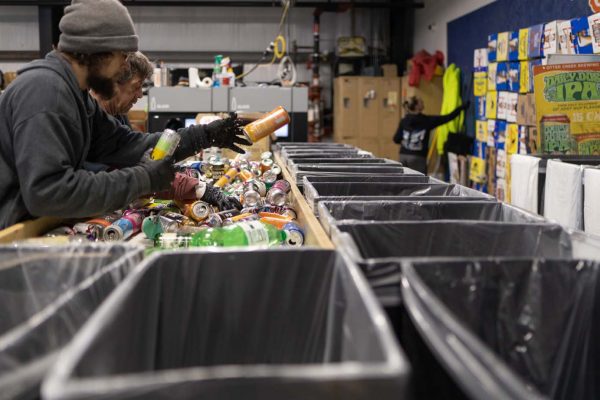
Employees at Patman’s Redemption Center hand sorting bottles and cans [Photo credit: JSmulski/NRCM]
In a recent visit to Peter Welch’s redemption center in Portland he emphasized in the “anatomy of labor, sorting is only one of the things we do.” It’s customer service. It’s running the cash register. It’s cleaning. It’s fixing self-sorting machines when they break. And they will break.
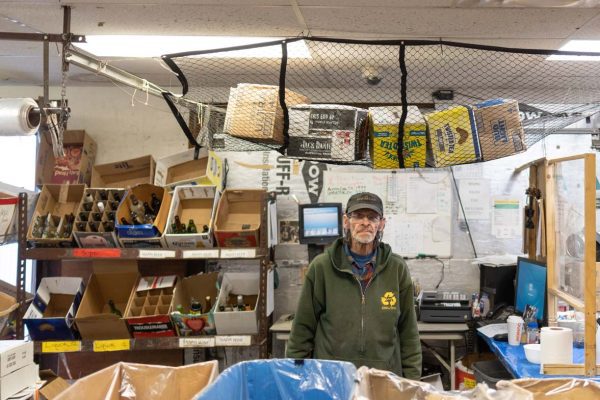
Portland Redemption Center employee standing in front of register [Photo credit: JSmulski/NRCM]
But right now, Maine’s local redemption centers are struggling to survive. Inflation and labor shortages have forced some to close and many others to operate at a loss. You may have witnessed these stresses first-hand if you’ve had trouble redeeming bottles and cans, or seen bags of returnables piled up at CLYNK depots in Hannaford parking lots.
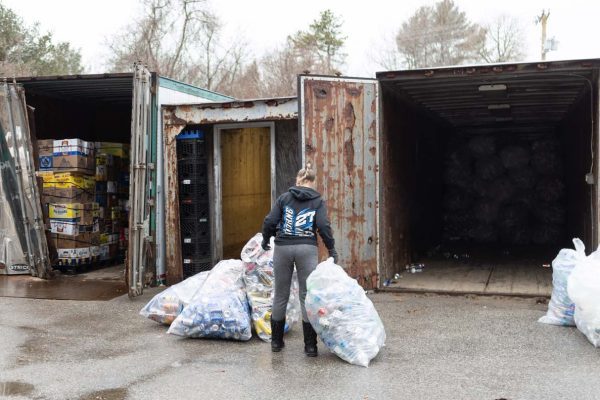
More than 60% of all plastic recycled in Maine is done through the Bottle Bill program. [Photo credit: JSmulski/NRCM]
“The story we all watched unfold that morning was one of unexpected laboriousness: far more of the sorting is undertaken manually than we could have imagined. Even where machines are involved—crushing cans and smashing glass—ample opportunities for injury arise. Most jarring though, was just how many consumer items marked as recyclable are actually *not;* which means these redemption centers not only use bottle deposits to pay their staff, but also to pay for trashing all those non-recyclable items.”
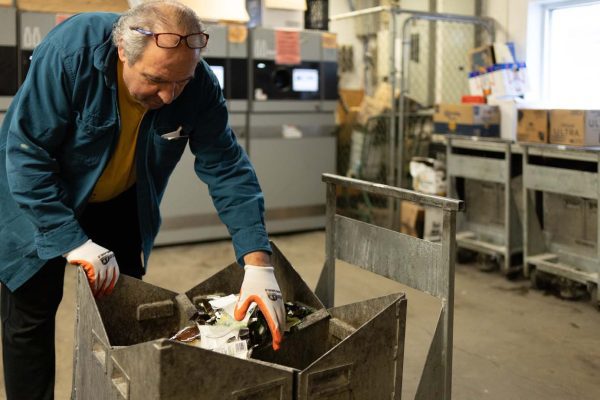
Peter Welch showing a behind the scenes of how their glass bottle machine sorting works. [Photo credit: JSmulski/NRCM]
Maine’s Bottle Bill is a big part of our culture and environmental ethic. Hundreds of Mainers have built their lives and small businesses around bottle redemption. It helps cities and towns reduce waste and save money.
But during the 45 years since the Bottle Bill began there have been many new types of beverages brought to market, advancements in technology, and a growing consumer demand to return to refillable containers.
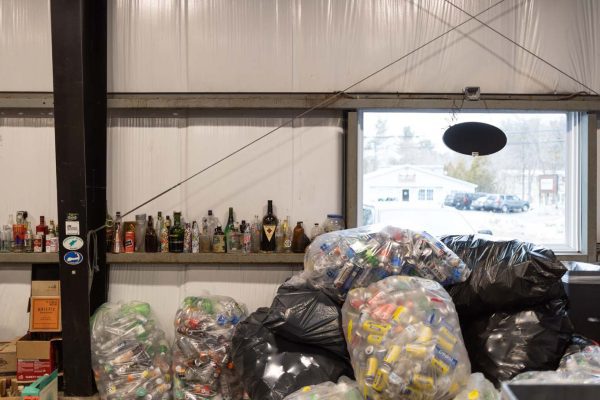
An estimated $16.7 million in “unclaimed deposits” are being funded annually by consumers when containers aren’t redeemed. [Photo credit: JSmulski/NRCM]
The second bill, sponsored by Rep. Allison Hepler of Woolwich, would modernize the Bottle Bill to make it more efficient, effective, and resilient for the future. It would streamline the program for hard-working redemption centers and support sorely needed improvements that will increase consumer convenience and reduce trucks on the road.
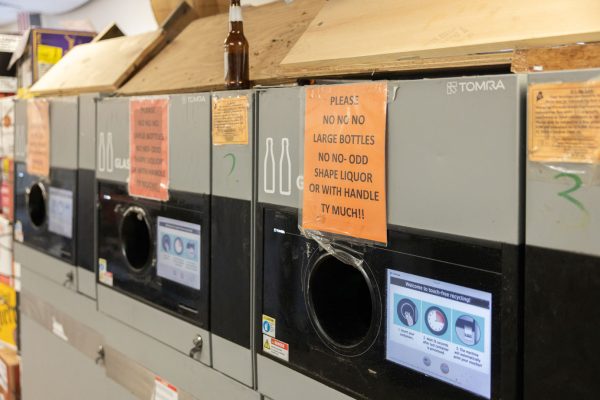
Automatic sorting machine at Portland Redemption Center [Photo credit: JSmulski/NRCM]
As individuals, one of the best ways we can get involved is by encouraging lawmakers to support these bills. We also need to redeem our containers. Twenty-five percent of beverage containers sold in Maine aren’t being returned, and that money stays with big corporate brands like Coke or Pepsi. Redeeming your containers ensures the money goes back to you or to whatever local charity you’re supporting.
No other program can deliver the environmental, economic, and social benefits of the Bottle Bill. Local redemption centers mean so much to the communities they serve. The time is now to bring our Bottle Bill into this century and support the local businesses that will ensure its long-term success.
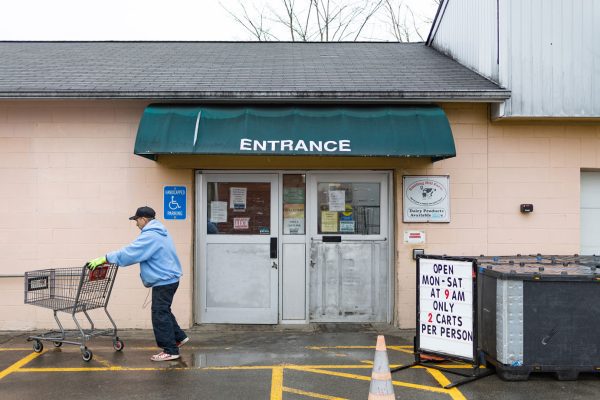
Portland Redemption Center [Photo credit: JSmulski/NRCM]










I’m having a problem finding open bottle redemption places in Maine. They used to be very easy to find, but not anymore. What is going on with the closures of the redemption locations?
Many bottle redemption centers closed or were in danger of closing in Maine, in part due to small handling fees paid to the centers. NRCM and others worked with legislators in 2023 to increase that handling fee and make other changes to bottle redemption. I encourage you to read our blog about the issue and how we worked to get two bills passed to help modernize the Bottle Bill: https://www.nrcm.org/blog/how-maine-modernized-bottle-bill/